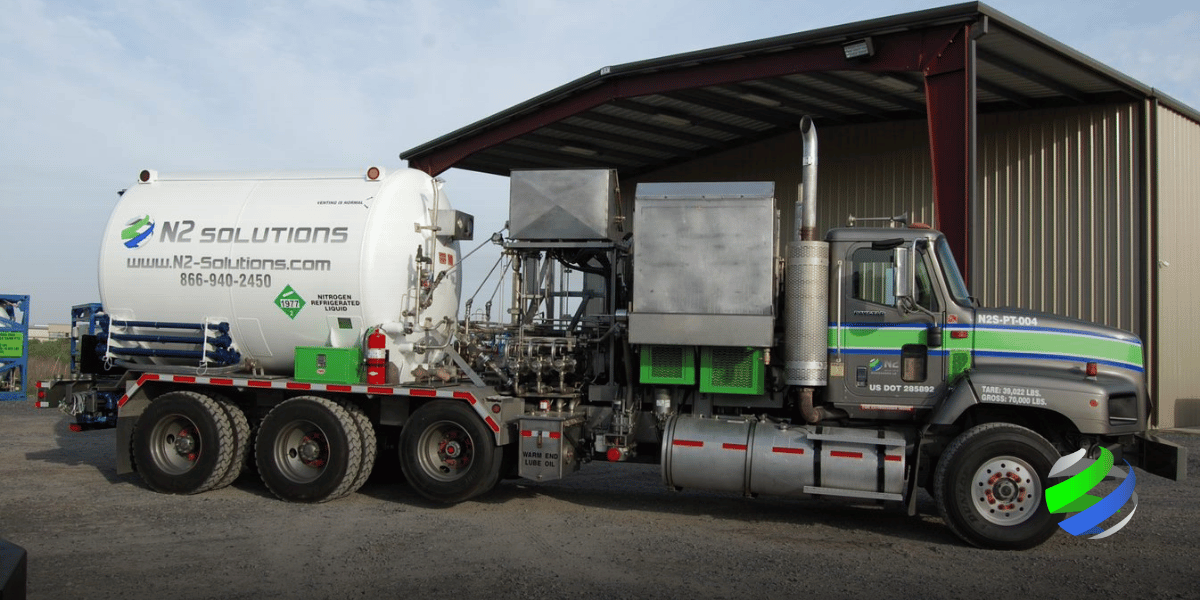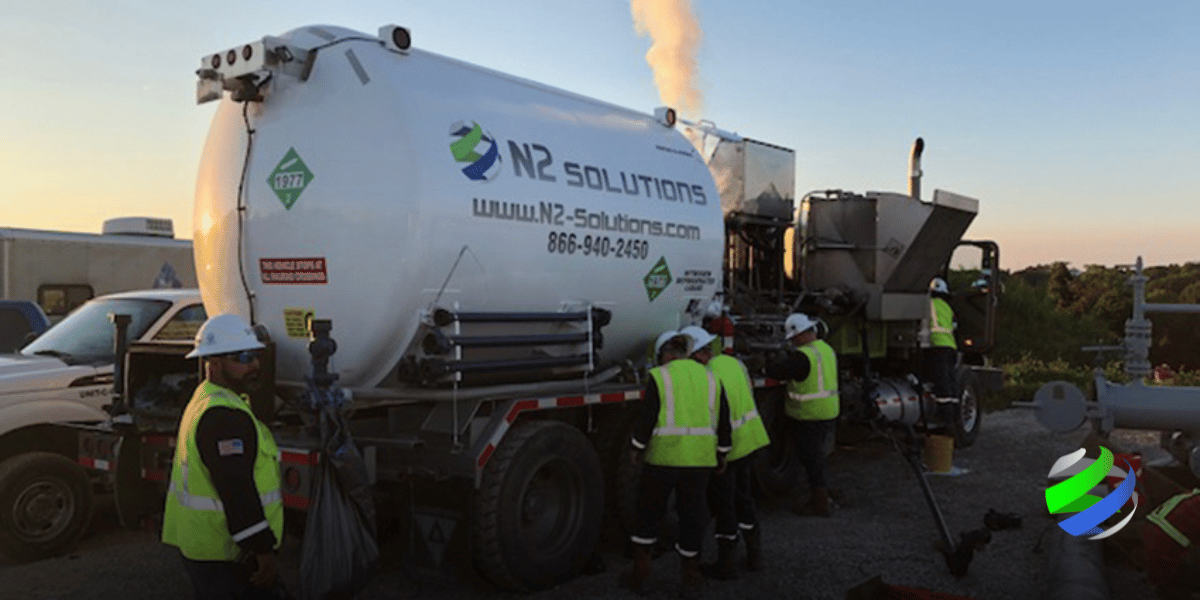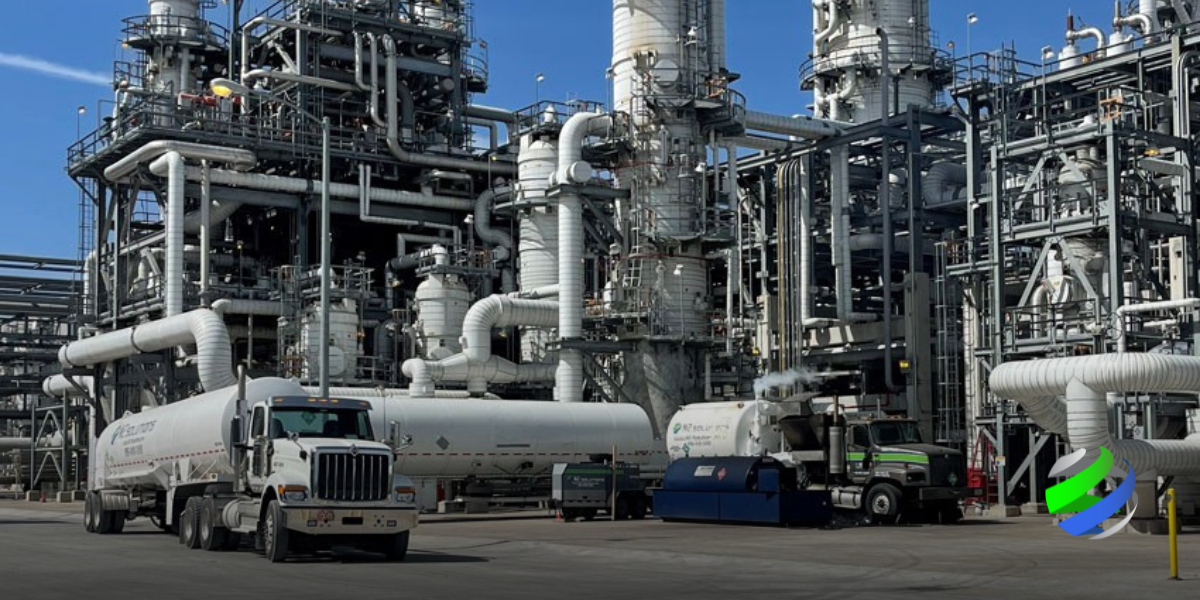N2 Solutions Announces Complete Acquisition of PFS Nitrogen Services
N2 Solutions (N2S), a leading supplier of nitrogen services to the energy, industrial, chemical, and pipeline industries, has announced the...
3 min read
 N2 Solutions
:
Nov 11, 2024 4:34:05 PM
N2 Solutions
:
Nov 11, 2024 4:34:05 PM

Choosing between membrane nitrogen generators and cryogenic nitrogen can significantly impact the efficiency and costs of your operations. Both methods offer unique benefits and drawbacks, depending on your project’s requirements.
In this post, we'll break down the key differences, and help you understand when to use one over the other.

Membrane nitrogen generation is an on-site method of producing nitrogen by separating nitrogen molecules from compressed air using a selective permeable membrane. But how does this process work?
The generator pulls in ambient air, compresses it, and passes it through a membrane that allows oxygen and other gases to escape while keeping nitrogen. This process delivers a continuous nitrogen supply without the need for liquid nitrogen storage or transport, which is highly advantageous for industries aiming for convenience and lower logistics costs.
Pros:
However, membrane nitrogen generators come with some limitations.
Cons:
Cryogenic nitrogen refers to nitrogen stored at extremely low temperatures in liquid form. To convert liquid nitrogen to gas for industrial use, cryogenic pumps are used. This method is often employed in industries that require high nitrogen purity, such as the petrochemical or pipeline sector.
But what makes cryogenic nitrogen pumps stand out?
Pros:
However, like any system, cryogenic nitrogen has its downsides.
Cons:
Operating costs are one of the primary considerations when selecting between membrane and cryogenic nitrogen systems.
Membrane nitrogen generation systems generally have lower long-term operational costs compared to cryogenic nitrogen systems. This is because membrane systems only require energy for air compression and maintenance, whereas cryogenic nitrogen incurs continuous costs for transport, storage, and fuel for the pumps.
While membrane nitrogen systems have a high initial setup cost, their lack of transportation and storage requirements can make them more economical over time. Additionally, companies like N2 Solutions offer nitrogen membrane generators that significantly reduce the downtime associated with replenishing nitrogen supplies.
On the other hand, liquid nitrogen systems might seem cheaper at first glance for small-scale or one-time applications. However, the constant need to store and transport liquid nitrogen can quickly outweigh these initial savings in high-demand operations. Thus, for large-scale, continuous use, membrane systems might be more advantageous, but for smaller, high-purity needs, cryogenic nitrogen is often preferred.
The decision between membrane nitrogen and cryogenic nitrogen largely depends on the specific needs of your project. If you require continuous nitrogen supply at a lower purity and are seeking to minimize transportation and storage costs, membrane nitrogen generators are the ideal solution. For industries where high-purity nitrogen is crucial, and where flexibility and instant availability are important, cryogenic nitrogen pumps might be the better choice.
Ultimately, companies like us at N2 Solutions provide tailored nitrogen generation and pumping services that cater to a wide range of industries. Whether you prioritize operational efficiency, safety, or nitrogen purity, understanding the strengths and weaknesses of each system will guide you in making the most informed decision.

%20(3).png?width=180&height=90&name=N2%20-(300%20x%20150)%20(3).png) N2 Solutions strengthens their position as a nitrogen services leader with the acquisition of PFS Nitrogen Services, expanding its locations and product offerings. With pump trucks, nitrogen transports, pipeline chemical solutions, pig tracking, and pipe freeze technology, N2 delivers cost-effective solutions to energy, industrial, chemical, and pipeline clients. Together, N2 Solutions and PFS set a new standard of excellence in nitrogen solutions for their customers.
N2 Solutions strengthens their position as a nitrogen services leader with the acquisition of PFS Nitrogen Services, expanding its locations and product offerings. With pump trucks, nitrogen transports, pipeline chemical solutions, pig tracking, and pipe freeze technology, N2 delivers cost-effective solutions to energy, industrial, chemical, and pipeline clients. Together, N2 Solutions and PFS set a new standard of excellence in nitrogen solutions for their customers.
.png)
N2 Solutions (N2S), a leading supplier of nitrogen services to the energy, industrial, chemical, and pipeline industries, has announced the...

Nitrogen (N2) is one of the most versatile gases in industrial applications, offering unique properties that make it indispensable in a wide...

Nitrogen, or N2, is a fundamental element that powers many industries across the globe. Its unique properties as a non-reactive gas make it an...